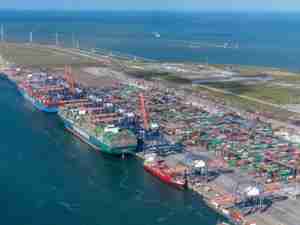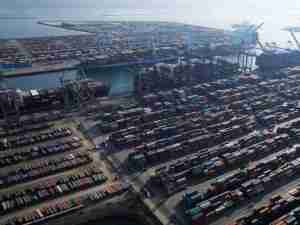The Port of Quincy Rural Freight Mobility Summit featured several high-profile speakers on transportation and freight mobility issues in Washington state, including:
- Dan Newhouse - Director of the Washington State Department of Agriculture;
- Bill Bryant - President of the Port of Seattle;
- Rep. Judy Clibborn - Chair of the Washington State House Transportation Committee;
- Rep. Mike Armstrong - Ranking Minority Member of the Washington State House Transportation Committee;
- Scott Witt - Co-Director - Freight Systems Division, State Rail & Marine Office, Washington State Department of Transportation;
- Chris Mnichowski - Co-Owner of Rail Logistics, LC / Cold Train, LLC
In particular, a lot of the discussion at the Rural Freight Mobility Summit centered around the Port of Quincy's Intermodal Terminal and the new Pacific Northwest-Chicagoland Express "Cold Train" Intermodal Service, a new refrigerated intermodal container rail and distribution service between Quincy, WA and Chicago, IL, which was described by several of the speakers as an important cost-effective intermodal rail shipping option for perishable shippers in Central Washington.
Additionally, the Port of Quincy Intermodal Terminal was hailed as a tremendous example of a successful public-private partnership in which public investment by the Port of Quincy, Federal and State Governments has now attracted and created private sector economic development from companies such as Rail Logistics (i.e., the Cold Train) and Columbia Colstor (i.e., the Columbia Colstor International Intermodal Warehouse), etc.
Moreover, there was quite a bit of conversation about the need for Washington state to invest in improved freight mobility infrastructure so that its ocean ports will be able to better compete on a global scale with new and/or improved high-tech port facilities in Canada and Central America.










